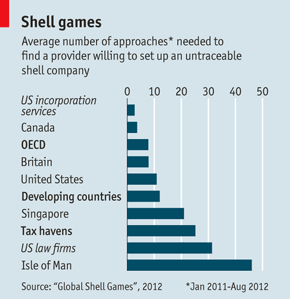In his weekly column at Vice, Warren Ellis finds it in his flinty heart to mourn the passing of fun in politics:
There has long been a notion abroad that positions of authority should be given to the best-qualified people who don’t want them, as the job of “ruler”, like “censor”, does not necessarily attract the best kind of human being. That would, of course, kill the inherent black comedy in politics-watching. The creatures who fight and kick and bite for the right to fuck with our lives tend to be grotesques, and serve as warnings. Warnings we never heed, of course, because we end up voting something in from that shallow pool of eels every time.
But, every now and then, there comes a period where that pool gets drained, and we find ourselves dealing with the dregs.
I actually find myself weirdly nostalgic for the authentic monsters of politics. Even the sly, hollow hustling of Tony Blair would be preferable to the callow bafflement of Nick Clegg, the unnaturally shiny forehead and beta-male posturing of David Cameron, and the… well, whatever Ed Miliband is. There’s Vince Cable, whom lots of people seem to like the idea of, but his presence, unfortunately, is that of Gravedigger #2 in one of the less successful Hammer Horror films.
Over the water, Mitt Romney doesn’t even have the facility to be slippery. He just staggers down the corridor of ideology like a cheap drunk, bumping into the walls. And President Obama isn’t even a tragic hero in the mode of Jimmy Carter, who struggled mightily (with himself, as much as anything else) and fell before the eerie charm of Ronald Reagan. I can admire the man’s intellect and general beliefs (or “values”, which is the season’s buzzword) while recognising that his main mode of operation is as a chilly functionary unwilling to take the big fights all the way.

 Lots of bookies are unhappy with the result of Sunday’s game in Minnesota, as the underdog Vikings played a complete game and came out with a big win over the heavily favoured San Francisco 49ers. Tight End Kyle Rudolph came down with two touchdown passes from Christian Ponder, and Ponder scrambled for another TD. Rookie Kicker Blair Walsh set a team record with another 50+ yard field goal to extend his career-opening streak to three games. 1500ESPN’s Tom Pelissero and Judd Zulgad wrap up the game from the Metrodome:
Lots of bookies are unhappy with the result of Sunday’s game in Minnesota, as the underdog Vikings played a complete game and came out with a big win over the heavily favoured San Francisco 49ers. Tight End Kyle Rudolph came down with two touchdown passes from Christian Ponder, and Ponder scrambled for another TD. Rookie Kicker Blair Walsh set a team record with another 50+ yard field goal to extend his career-opening streak to three games. 1500ESPN’s Tom Pelissero and Judd Zulgad wrap up the game from the Metrodome: The international standard governing shells, set by the inter-governmental Financial Action Task Force (FATF), is clear-cut. It says countries should take all necessary measures to prevent their misuse, such as ensuring that accurate information on the real (or “beneficial”) owner is available to “competent authorities”. More than 180 countries have pledged to follow it. A study* scrutinises the level of compliance worldwide. The results are depressing.
The international standard governing shells, set by the inter-governmental Financial Action Task Force (FATF), is clear-cut. It says countries should take all necessary measures to prevent their misuse, such as ensuring that accurate information on the real (or “beneficial”) owner is available to “competent authorities”. More than 180 countries have pledged to follow it. A study* scrutinises the level of compliance worldwide. The results are depressing.

